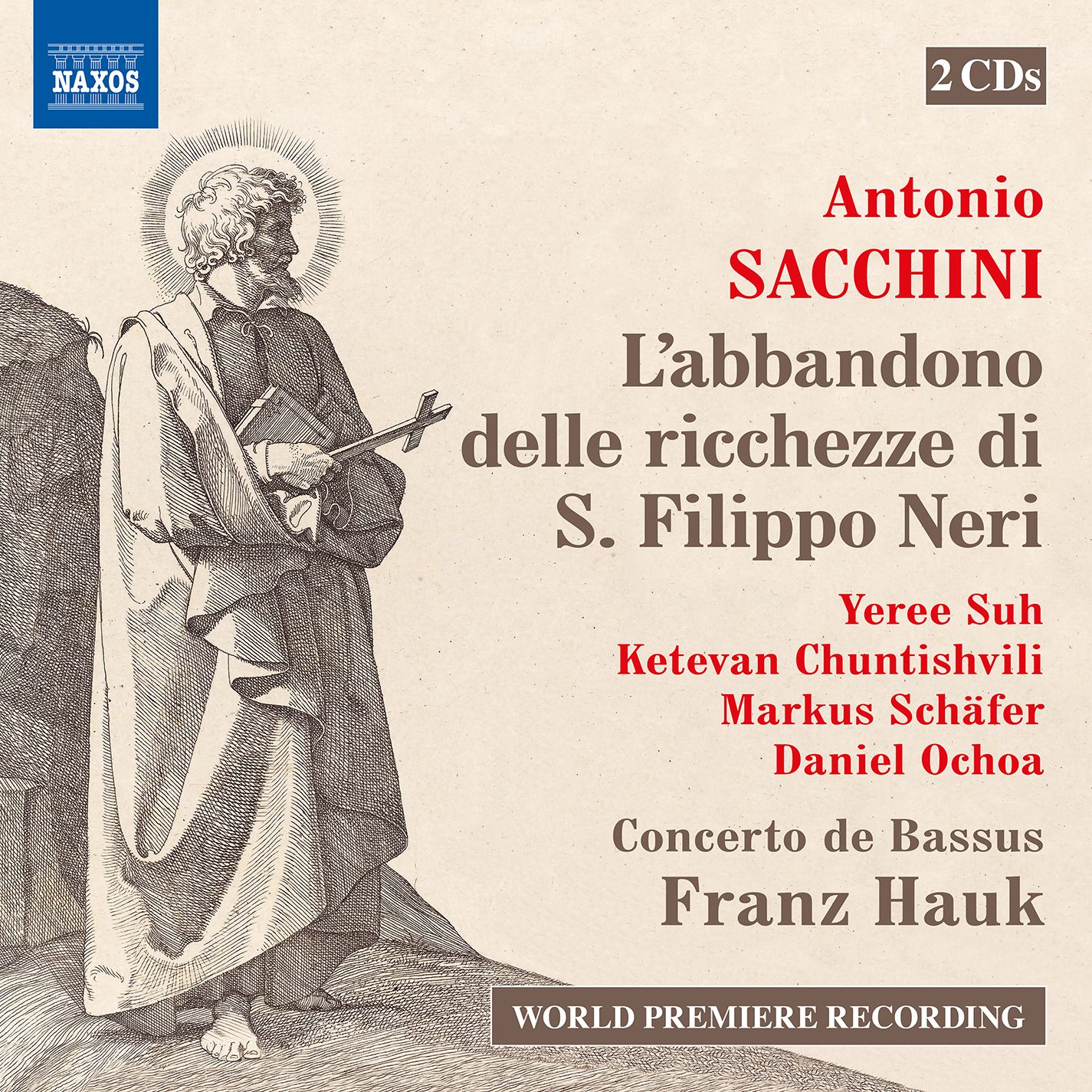Sacchini: L'abbandono delle richezza di S. Filippo Neri
An amazing, stimulating release that invites a flood of Sacchini releases to follow on in its wake

First performed in 1765; Antonio Sacchini’s Saint Philip Neri’s Renunciation of All Worldly Wealth concentrates on the spiritual trials of Saint Philip Neri as he is hounded by the personifications of Splendour and Deception; assisted and defended by Poverty on his journey towards God and virtue. Franz Hauk conducts Concerto de Bassus with a team of renowned soloists. This is a World premiere recording.
Sacchini studied at the Conservatorio S. Maria di Loreto in Naples with Fenaroli, Speranza, and Anfossi. His life is particularly fulled with incident. In 1804, he was appointed Mestro di Capella Sistine Chapel in the Vatican. But in 1811 he was imprisoned in Civitaveccia (of Tosca fame) for refusing to conduct a Te Deum to celebrate the birthday of Napoleon’s son, the “King of Rome’ Later, transported to Paris by order of Napoleon, who set him at free. Zingarelli went to Naples, and in 1813 became director of the royal Collegio di Musica; in 1816 he succeeded Paisiello as maestro di cappella at the Naples Cathedral. He taught Bellini, Mercadante, and Rossi, Morlacchi, amongst others. He wrote 27 operas, all premiered at Las Scala, Milan. operas, interpreted by the finest singers of the time (Catalani, Crescentini, Grassini, Marchesi, and Rubinelli), were highly successful. His facility was such that he was able to write an opera in a week. He wrote 37 operas, 12 of which were premiered a La Scala.
Interesting that Sacchini taught Zingarelli, whose Guilietta e Romeo is being performed currently at Versailles. My review for Opera Now will be published in due course - in the meantime, here's an aria from Zingarelli's opera sung by Javier Camarena on his disc, Contrabandista:
And so to L'abbandono delle ricchezze di S. Filippo Neri (1765), heard here in a simply phenomenal performance bu Concerto de Bassus under Franz Hauk, who also prepared teh critical edition of the score along with Manfred Hößl and Dietmut Hauk, based on the Bologna version.
The soloists here are uniformly superb. Listen to the Povertà, soprano Ketevan Chuntishvili, in the aria from the eight-minute first part, “In mezzo all procelle”:
Saint Philip (San Filippo) is taken by soprano Yeree Soh, beautifully-pure of voice. Try this, the aria “Sol ti chide oh Nume amato” (a similarly extended excerpt, at 7"46):
The tenor is Markus Schäfer, taking the role of Gesro, HIs part II aria, “Ascolta i consiglio” is a five-minute masterpiece:. The long orchestra introduction shows off the quality of the Concerto de Bassus strings:
Bass Daniel Ochoa is teh final soloist for mention, as Inganno. He has less to do than the others, perhaps, but certainly has fun with this aria,“La rabbia, lo sdegno,” full of restless energy:
Booklet notes, by Dr Lorenz Gadient, are amongst the best of their kind I have seen, whether on Naxos or elsewhere, scholarly and erudite. An amazing, stimulating release that invites a flood of Sacchini releases to follow on in its wake.
